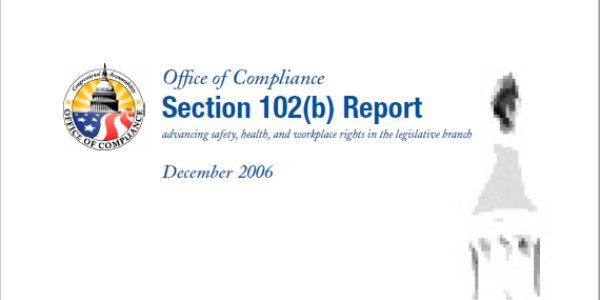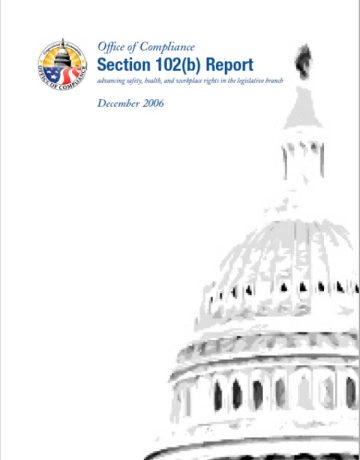Introduction
Prior to the enactment of the Congressional Accountability Act of 1995 (CAA), Congress recognized the need to legislate many aspects of the workplace, and it did so by passing laws to address workplace rights and the employment relationship. These laws, however, were not applicable to Congress. Congress had excluded itself and other instrumentalities of the legislative branch from the requirements of these laws. Passage of the CAA, with nearly unanimous approval, in the opening days of the 104th Congress, reflected a national consensus that Congress must live under the laws it enacts for the rest of society.
The CAA is not meant to be static. The Act intended that there be an ongoing, vigilant review of federal law to ensure that Congress continue to apply to itself – where appropriate – the labor, employment, health, and safety laws it passes. To further this goal, the Board of Directors of the Office of Compliance (“Board”) was tasked with the responsibility of reviewing federal laws each Congress to make recommendations on how the CAA could be expanded. Since its creation, the Board has duly submitted biennial Reports to Congress, starting in 1996, detailing the limited and prudent amendments that should be made to the CAA. There was also an Interim Report in 2001, regarding Section 508 of the Rehabilitation Act of 1973. In past reports, the Board has taken a broad approach in presenting its recommendations to amend the Congressional Accountability Act, and has encouraged Congress to consider and act upon those recommendations. By including Appendices A through C in this Report, the Board incorporates these prior recommendations as part of this Report: amendments to the Rehabilitation Act, title II and title III of the Civil Rights Act, record-keeping and notice posting, jury duty, bankruptcy, garnishment, and employee protection provisions of environmental statutes. The Board continues to ask that these prior recommendations be implemented.

